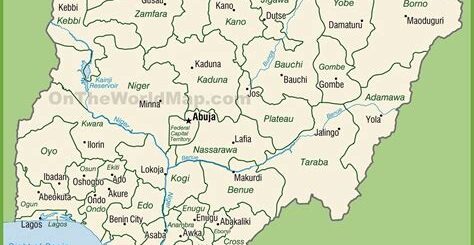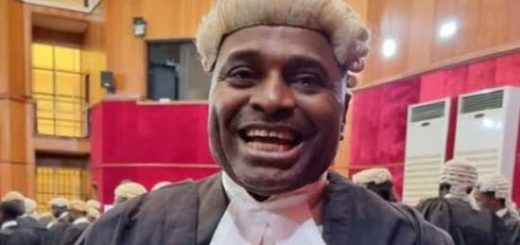Court Dismisses Suit on Dangote’s $100 Million Payment to Lagos State
 The Federal High Court in Lagos, under the presiding Judge Justice A. Faji, has dismissed a suit that sought to compel the Lagos State Government to disclose details of a $100 million payment allegedly made by Alhaji Aliko Dangote for land acquisition in the Ibeju-Lekki area. The case, filed by De Renaissance Patriots Foundation and Ibeju-Lekki Peoples Forum, aimed to force the state government to clarify whether the business mogul’s claim about the payment was true and provide a full account of the transaction.
The Federal High Court in Lagos, under the presiding Judge Justice A. Faji, has dismissed a suit that sought to compel the Lagos State Government to disclose details of a $100 million payment allegedly made by Alhaji Aliko Dangote for land acquisition in the Ibeju-Lekki area. The case, filed by De Renaissance Patriots Foundation and Ibeju-Lekki Peoples Forum, aimed to force the state government to clarify whether the business mogul’s claim about the payment was true and provide a full account of the transaction.
In his ruling, Justice Faji stated that the Lagos State Government could not be compelled to release the requested information because the law requiring such disclosure had not been domesticated within the state. The application specifically sought a mandate for Governor Babajide Sanwo-Olu and other key state officials to verify whether Dangote’s assertion was factual.
The lawsuit came after Dangote’s public claim that he paid the $100 million to acquire land for his refinery in Ibeju-Lekki, raising questions about transparency in handling public funds. The applicants hoped that, should the case succeed, the state government would provide a full breakdown of the deal and explain why no public statement had been made about such a significant financial transaction.
The motion, filed in September 2024 under Suit No. FHC/L/CS/1603/2024, was aimed at compelling the release of the information through a court order of mandamus. However, the court’s decision to dismiss the application has sparked concern among Lagos residents and civil society groups, who believe the ruling undermines transparency in governance.
The ruling has drawn criticism from various stakeholders, including Lasisi Robert’s Assembly of Lagos Youths, who argue that the court should have considered public interest and policy. Critics contend that the refusal to disclose such critical financial details exacerbates the challenges faced by communities in Ibeju-Lekki, where significant infrastructural deficits remain. The lack of stable electricity, quality education, and healthcare services in the area has raised doubts about how the funds were utilized, if at all.
Legal analysts have warned that the court’s refusal to enforce the disclosure request could set a troubling precedent, especially when it comes to financial transactions involving public institutions. They emphasize the importance of the Freedom of Information (FOI) Act and transparency in governance, arguing that withholding such information erodes public trust in government and discourages civic engagement.
Civil society organizations are calling for legal reforms that promote fiscal responsibility and transparency in governance. Stakeholders argue that stronger frameworks are needed to ensure that public resources are used effectively for development, particularly in areas where they can make a real difference in citizens’ lives.
As debates continue over the decision, there is growing pressure for the Lagos State Government to adopt more transparent practices and for legal reforms that enhance public access to critical financial information.













